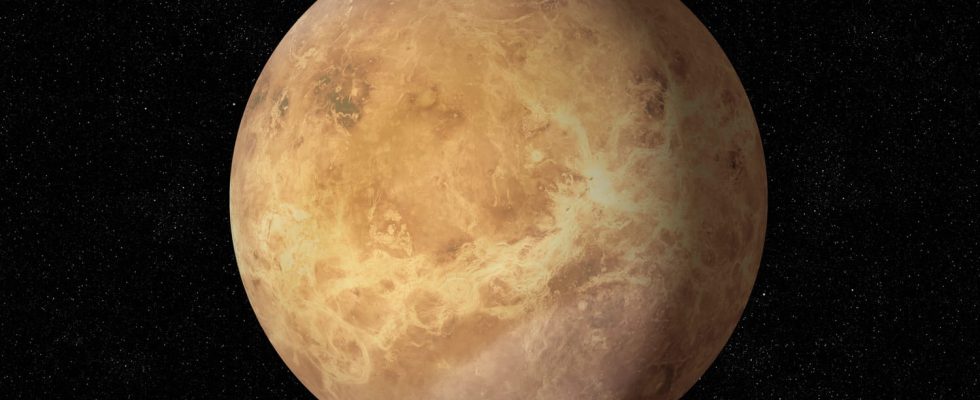VENUS. This Sunday, July 9, 2023 at the start of the evening, you will have the opportunity to admire the planet Venus, which will appear particularly bright. We tell you all about this astronomical rendezvous with the Evening Star.
[Mis à jour le 7 juillet 2023 à 13h50] You may have noticed that the Evening Star has been appearing brighter and brighter in the evening sky for the past few days. Always very bright, the planet Venus will reach its peak of luminosity this Sunday July 9, 2023 in the evening. This is an opportunity for amateur astronomers to discover the one that is nicknamed “the false twin of the Earth”. The planet will be perfectly visible to the naked eye above the western horizon from the time of sunset. It will be necessary to be ready, because the star will quickly disappear behind the horizon around 11 p.m., leaving all the same about an hour and a half for the spectators to marvel.
Venus has the particularity of being very close to the Sun and of having an atmosphere that strongly reflects light. It is also not far from our planet on an astronomical scale, which allows us to observe it easily even with basic equipment. Thus, if you have even a modest telescope, you can aim your lens at the star and see that it appears in the form of a crescent, since it is not a star, but indeed of a planet!
When to observe Venus in 2023?
Venus will be visible in the evening sky until the end of July 2023. It was at its highest point in the sky in May and is gradually descending towards the horizon. We will then have to wait until the second half of August 2023 to see it reappear. This time, it is towards the east that you will have to turn to admire the evening star in the early morning.
Venus is so bright that it is easy to spot in the sky, even if night has not yet fallen or the sun is already up. You can therefore admire the Evening Star, as it is nicknamed, with the naked eye without any difficulty. Venus closely follows the course of the sun in the sky. Depending on the period, it appears rather in the evening or rather in the morning.
If you have an amateur telescope, you can try to observe Venus through it, but be aware that depending on the day this planet can be so bright that it is sometimes difficult to observe anything other than a light spot. You can place a moon filter on your lens to lessen this effect.
You may also be disappointed if you hope to make out the surface of Venus. This planet is surrounded by thick clouds which make its observation particularly thankless.
What is special about the planet Venus?
Often compared to Earth, especially because of its size, Venus is nevertheless a very curious planet. A barren world of extreme heat and pressure, Venus is best known for its nickname, Evening Star.
It is also a particularly slow planet, which takes longer to go around itself than to go around the Sun. The latter brings him a large amount of energy, which allows him to sparkle more than the brightest stars in the sky, hence his famous nickname.
But Venus is also a planet that could have been very similar to ours. Often referred to as “Earth’s twin”, it has many similarities to our world, but has evolved very differently. This fate intrigues many astronomers who now seek to unravel the mysteries of Venus.
Why is Venus called the Evening Star?
Thanks to its position very close to the Sun and its atmosphere which reflects the light it receives, Venus is the brightest star in the sky. It appears before all the stars in the sky and is the last star to disappear when the sun rises in the morning. This planet has therefore long been confused with a particularly luminous star. It is for this reason that it served as a benchmark for the shepherds who evaluated the time that passes thanks to it.

